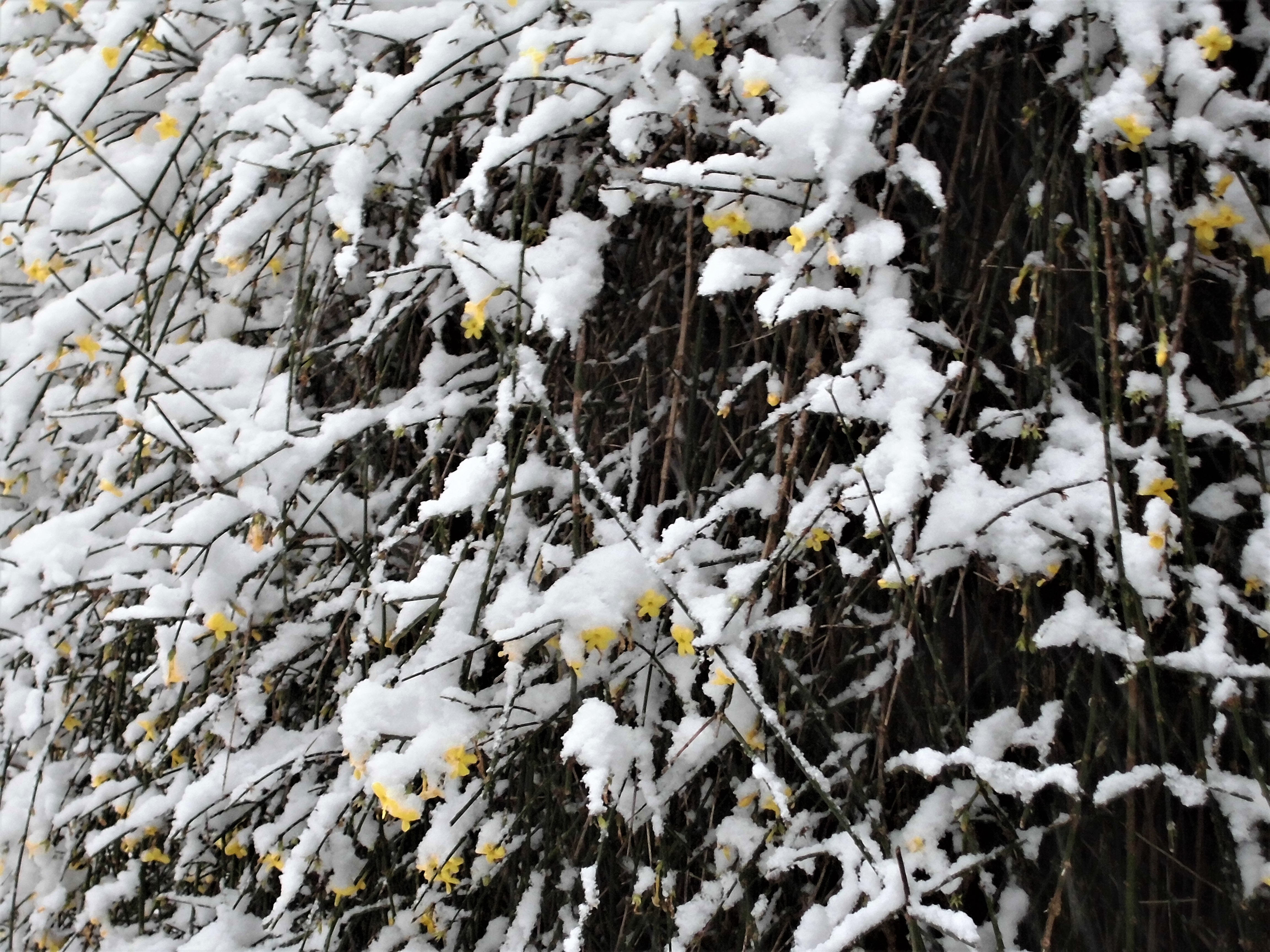Fragments
Kemmler Foundation Reading
![]()
If you happen to be in Berlin, my short play The Family and its Discontents will be presented at the Kemmler Foundation, on Saturday the 22nd of November at 18:00 o’clock.
The play is a result of a residency in Lüneburg, co-organised by the Halle für Kunst Lüneburg and Texte zum Nachdenken.
There will also be readings by fellow writers Eda Aslan, Benedikt Bock, Katherina Gorodynska, Katharina Höglinger, Sarah Lehnerer, Dana Lorenz, Lucila Pacheco Dehne, Lean Rüegg, Dylan Spencer-Davidson, and Punch Viratmalee, and a dinner prepared by artist Olga Monina.
22.11.2025
New short-story in
Νέο Πλανόδιον
A short story set in the Peloponnese, inspired by the currently very popular Simone Weil—I did not escape. Link here.
07.06.2025.
Small books
In the past year, I’ve found myself mostly reading small and short books. And I’ve figured out it doesn’t have to do with a lack of time—time has always been the same, in the sense that people have had the same amount of time* and it is only the quality of time (or, then, Time)
that is different. That also doesn’t mean I don’t read longer texts—I was recently very happy to see that,
when left alone,
I can still read 400 pages in two days. In any case, what I find attractive about these short publications is that they are modest and generous, without necessarily being shallow. Here is my latest read, of which I will share the end (something I’m usually careful about, since I don’t want to take away from the climax of a text, but this is such a great end that breaking my own, arbitrary rules was worth it):
“The contemporary proliferation of bullshit also has deeper sources, in various forms of skepticism which deny that we can have any reliable access to an objective reality, and which therefore reject the possibility of knowing how things truly are. These “antirealist” doctrines undermine confidence in the value of disinterested efforts to determine what is true and what is false, and even in the intelligibility of the notion of objective inquiry. On response to this loss of confidence has been a retreat from the discipline required by dedication to the ideal of correctness to a quite different sort of discipline, which is imposed by pursuit of an alternative ideal of sincerity. Rather than seeking primarily to arrive at accurate representations of a common world, the individual turns toward trying to provide honest representations of himself. Convinced that reality has no inherent nature, which he might hope to identify as the truth about things, he devotes himself to being true to his own nature. It is as though he decides that since it makes no sense to try to be true to the facts, he must therefore try instead to be true to himself.
But it is preposterous to imagine that we ourselves are determinate, and hence susceptible both to correct and incorrect descriptions, while supposing that the ascription of determinancy to anything else has been exposed as a mistake. As conscious beings, we exist only in response to other things, and we cannot know ourselves at all without knowing them. Moreover, there is nothing in theory, and certainly nothing in experience, to support the extraordinary judgment that it is the truth about himself that is the easiest for a person to know. Facts about ourselves are not peculiarly solid and resistant to skeptical dissolution. Our natures are, indeed, elusively insubstantial—notoriously less stable and less inherent than the natures of other things. And insofar as this is the case, sincerity itself is bullshit.”
*Yes, obviously, not everyone is gifted the same amount of it, but let’s say one lives 50 years: in terms of amount of time that would have been the same if that person lived in the 1500s or the 2000s, but the quality of that time would have been different.
On Bullshit / Harry G. Frankfurt, Princeton University Press, p. 64-67, (2005). Read 06.06.2025.
Η Μάγδα και το σπίτι στο Νέο Πλανόδιον
“Σ’ εκείνο το σπίτι όλα ήταν στραβά. Ο τοίχος ήταν στραβός, οι καρέκλες ήταν στραβές, ακόμα και το τραπέζι ήταν στραβό και με κάτι πόδια τεράστια, τόσο μάλιστα που όποτε ήθελε να στηρίξει τους αγκώνες της πάνω του, κατέληγε να στριφογυρνά στη θέση της και να βλαστημά. Η Μάγδα δεν είχε επιλέξει κανένα από τα έπιπλα του σπιτιού. Μετά τον τελευταίο της χωρισμό αναγκάστηκε να επιστρέψει προσωρινά στους γονείς της – προσωρινά, είχαν περάσει τρία χρόνια. Η επιστροφή στο σπίτι τους την πήγαινε πίσω στην εφηβεία της, όταν στη διπλανή πολυκατοικία κατοικούσε μια οικογένεια με τα διπλάσια χρόνια από τη δική τους. Οι γονείς είχαν βγει στη σύνταξη προ αμνημονεύτων χρόνων, αλλά η κόρη έμενε ακόμα μαζί τους. Τότε δεν το καταλάβαινε, το έβρισκε άθλιο και μάλλον ήταν, ιδίως εκείνες τις εποχές που οι περισσότεροι τριαντάρηδες αγόραζαν δεύτερο αυτοκίνητο και πήγαιναν διακοπές στη Μαγιόρκα. Στα τριάντα τέσσερα πλέον, η Μάγδα μετρούσε τις αποτυχημένες της σχέσεις και μέχρι και η ίδια λυπόταν τον εαυτό της. Στις περισσότερες, η μιζέρια είχε εισχωρήσει σαν νερό που έσταζε απ’ το ταβάνι, μια άκακη στάλα τη φορά, ώσπου στο τέλος όλα σάπιζαν.”
Συνέχεια εδώ.
09.01.2025.
Self-portrait as a coffee-pot
“The informal sector always subsidizes the formal sector.”
William Kentridge
![]()
Self-portrait as a coffee-pot: vanishing points / Created and directed by
William Kentridge; Executive producers: Rahcel Chanoff, Noah Bashevkin, Joslyn Barnes; Co-executive producers: Brenda Potter, Danny Glover, Susan Rockefeller, Maja Hoffmann, Maida Lynn, Linda Dodwell; Consulting editor Walter Murch; Editor: Žana Marković; Associate editors: Janus Fouché, Joshua Trappler; Director of Photography: Duško
Marković; Lighting camera operator: Chris-Waldo De Wet; Cast: William Kentridge, Kyle Shepherd, Nhlanhla Mahlangu; et al. [24:16-24:22]. (2024).
Watched on 17.12.2024.
Limestone Books - Fragmented Polyphonies
![]()
“I show up... and it’s all over.”
[Around 20’22’’]
Excerpt from a talk at Limestone Books:
In this still from the documentary Mobutu, Roi du Zaïre, Mobutu Sese Seko Kuku Ngendu wa za Banga, born Joseph-Désiré Mobutu, talks about being a “loved leader” and then goes on to give an example of this. I watched the documentary with hard-coded English subtitles and it’s interesting that in French he says:
“Chaque fois qu’on me dit que ça ne va pas là-bas, j’y arrive et à l’instant même où j’y arrive, il n’y a plus rien”, which I interpret as a double entendre; what Mobutu says could translate to “Whenever they tell me that something isn’t going right there, I show up, and at the same moment I do, it’s all over”, but it can also mean that at the moment that he arrives, there is nothing left...
Mobutu, Roi du Zaïre
/ Directed by Thierry Michel; Tournage Congo: Assistants Jean Mireille Kanianga, Paul Maseke; Image Jöel Marcipont, Son André Brugmans; Électro Mieko Maduku; Régisseur José Bau ; Tournage Belgique et France, Image Alain Marcoen, Didier Hill-Derive; Son Fabian Habari, Tournage U.S.A. Image Didier Hill-Derive; Son Fabian Habari; Documentaliste Judy Aley, Direction de production Christine Le Goff; Assistant Peter Bluds; Directrice de production Christine Pireaux; Asisstants de production Sabine Bourgeois, Olivier Bonckart, Christiane Stefanski, Alexandra Vannerum, Giuliette Von Salys; Secrétaires de production Sophie Albiar, Chantal Voets; Administrateur de production Frençoise Buraux; Comptable Jean Dumbruch; Post-production Cathy Deharynck; Documentalists Baudouin Massart, Charles Convent, Lucas Vereertbruggen, Jean Gbagba; Chef monteuse Marine Deleu; Monteuse additionnelle France Duez, et al.
[20:22], (1999).
24.11.2024.
On critique
![]()
Totally staged picture of Estelle Hoy’s book - a staged picture of a book? What has this world come to?“Every artist under the age of 45 enjoys, I suspect, the exposing of another artist...”
Beautifully put. Beautiful book. The deceivingly simple and unassuming design was in contradiction to the very elaborate content; what a pleasure to read!
Pisti, 80 Rue de Belleville / Estelle Hoy, After 8 Books, p. 54, (2019).
26.10.2024.
Repetitions
11:11
10.10.2024.
Συνεργασία Στίξη & The Scriptors
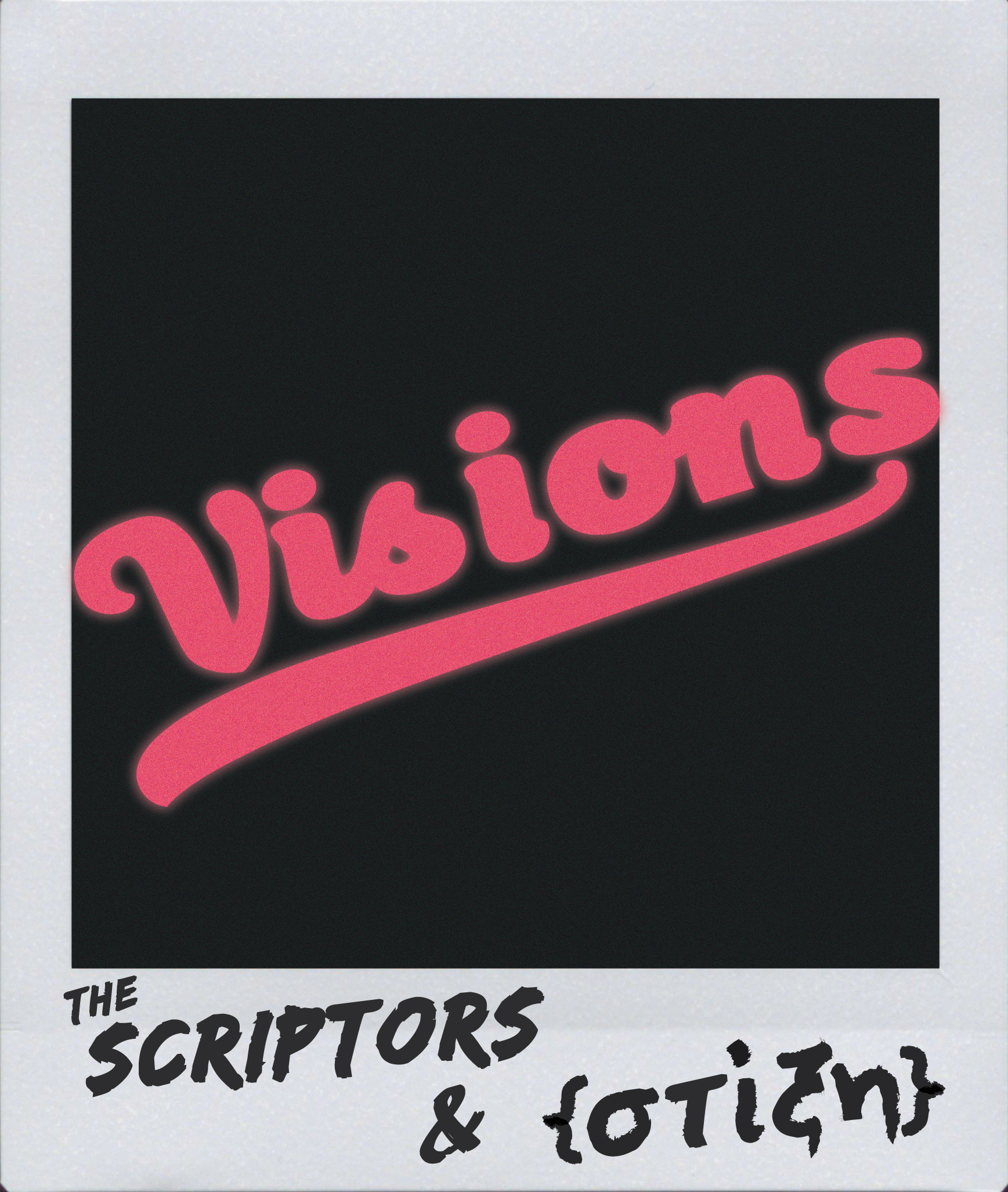
Πρόσωπα ή πράγματα εξαιρετικής ομορφιάς, οράματα, εικόνες του νου με προφητικό, αποκαλυπτικό ή ακόμα και υπερφυσικό χαρακτήρα, δηλαδή Visions, είναι η ομπρέλα κάτω από την οποία συνεργάζονται οι συγγραφικές ομάδες {στίξη} και The Scriptors. Με αφετηρία την όραση –την εικόνα–, οι δύο ομάδες εξερευνούν τη διαδρομή από το συνειδητό στο ασυνείδητο και ανακαλύπτουν όσα ανέσυραν κοιτώντας μια φωτογραφία με ένα τραπέζι και δύο άδειες καρέκλες.
Η {στίξη} είναι μια λογοτεχνική κολεκτίβα που δημιουργήθηκε το 2020, λαμβάνοντας την τέχνη ως αφορμή για να επανιδρύσει και επαναπροσδιορίσει τα χαρακτηριστικά του κοινού τόπου πάνω στον οποίο εμπνέεται να δημιουργεί. Αποτελείται από τον Νίκο Σταϊκούλη, την Ισμήνη Κατσάβαρου, τον Γιώργο Συμνιανάκη και την Ελένη Γεωργίου. Πέρα από τη διαδικτυακή της παρουσία, διοργανώνει τα δικά της projects & events, συνεργάζεται με άλλες ομάδες και μπάντες, ενώ από το 2021 τυπώνει και κυκλοφορεί ανεξάρτητα τα δικά της βιβλία.
Η ομάδα The Scriptors δημιουργήθηκε λόγω της ανάγκης των μελών της να βγουν από το μοναχικό κέλυφος του ταλαιπωρημένου συγγραφέα και να πειραματιστούν με διαφορετικά είδη γραφής. Στην παρούσα προσπάθεια συμμετέχουν τα μόνιμα μέλη βήτα ταυ και Άφρο Ξυλάνθη, καθώς και η επίτιμη καλεσμένη τους, Louisa Owen.
Μπορείτε να διαβάσετε τα κείμενα εδώ.
17.09.2024
The summer was a constant fire
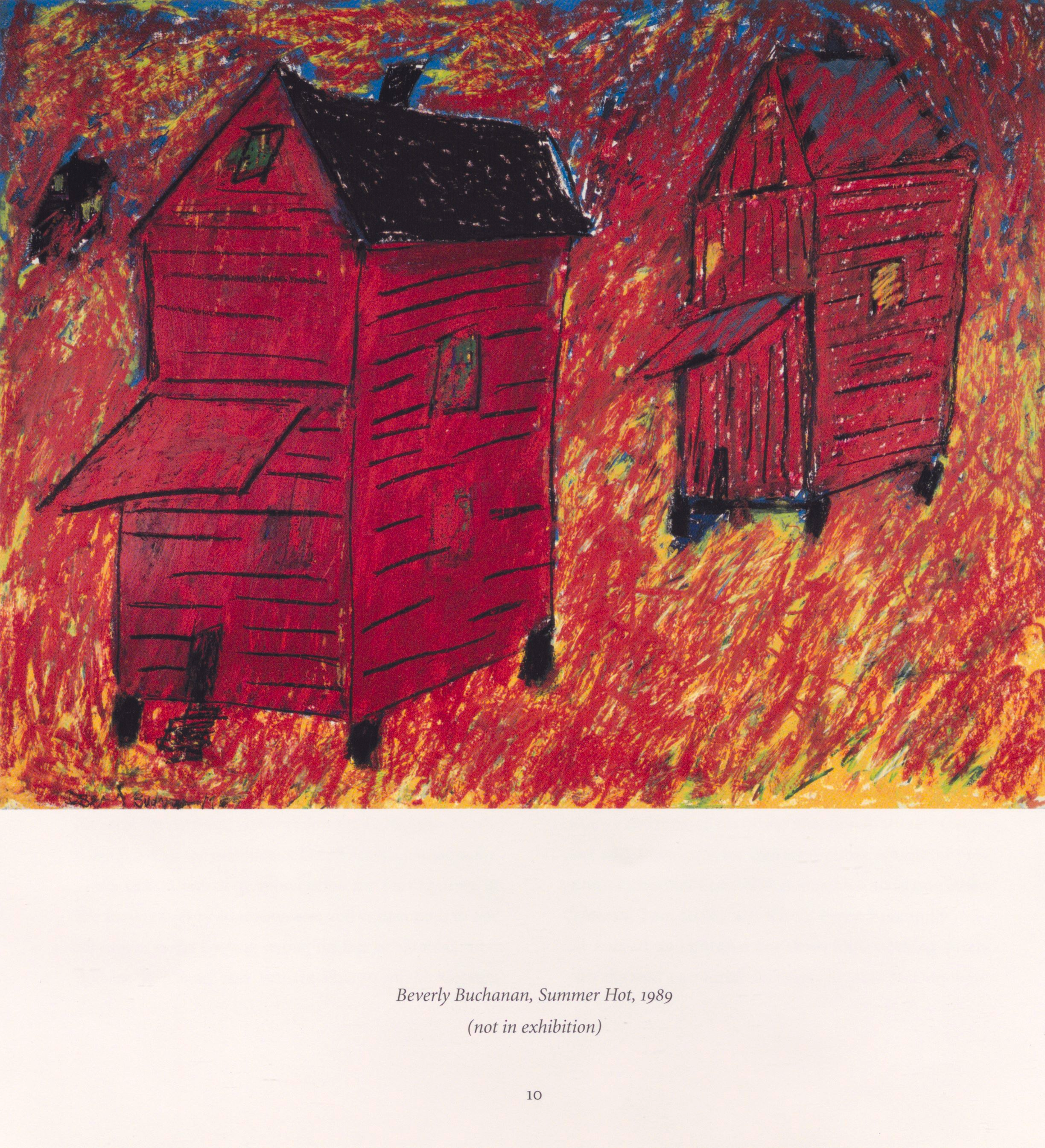 Summer Hot, Beverly Buchanan, 1989.
Summer Hot, Beverly Buchanan, 1989.House and home : spirits of the South /
Max Belcher, Beverly Buchanan, William Christenberry, Jock Reynolds, J., & Addison Gallery of American Art, (1994).
Addison Gallery of American Art ; University of Washington Press.
07.06.2024
The birth and life of ideas
“I believe that at the beginning of an idea, each of the men who hold it is both a prophet and a priest. But as the energy of the idea diminishes, the function of the priest and prophet begin to split apart; soon, no single person can perform both offices. As the idea exhausts itself in failure, on absorption and dissipation into the masses, in combat with competing ideas, the function of the prophet becomes irreconcilable to the function of the priest.
The priest is the archetype of the community which the original idea called into being. The community is marked with fossils of the original energy and convinced that only adherence to the original forms can rejuvenate it. The community is like an old lady whose canary has escaped in a storm but who continues to furnish the cage with food and water and trapezes in the hope that the canary will come back. The priest tries to persuade her that this optimism is religion.
The prophet, on the other hand, continues to serve the idea even as it changes forms, trying never to mistake the cast-off shell with the swift-changing thing that shed it. He follows it into regions of danger so that he becomes alone, and by his nature becomes unwelcome to the community. The community is a museum of the old forms and dedicated to them. It changes very slowly and usually under violence.”
I’m starting this year with an oxymoron, that is with sharing an excerpt from Leonard Cohen’s speech as it appeared in The Analog Sea Review (emphasis on analog), but I loved this passage on how we get stuck on ideas, while the principle of thinking is to not get fixated, otherwise we risk doing the opposite, which is to not think...
Loneliness and history / Leonard Cohen Published in The Analog Sea Review, p. 129-130, ([Speach read in 1964], 2022). Read 02.01.2024.
Απόψεις περί χρώματος επιδερμίδας άλλης εποχής
(ΓΟΡΓΙΑΣ) οὑτοσί. πρόσελθε σύ.
(ΚΝΗΜΩΝ) ἐπικέκαυται μέν. γεωργός ἐστι;
(ΓΟΡΓΙΑΣ) καὶ μάλ’, ὦ πάτερ. οὐ τρυφῶν οὐδ’ οἷος ἀργὸς περιπατεῖν
τὴν ἡμέραν ].γ̣ενος ..[
]σ̣δίδου ποεῖ <τε> του[
--
(ΓΟΡΓΙΑΣ) Ετούτος. Για ζύγωσε λιγάκι.
(ΚΝΗΜΩΝ) Ηλιοκαμένος δείχνει. Είναι ξωμάχος;
(ΓΟΡΓΙΑΣ) Και βέβαια, πατέρα, όχι κανένας τεμπέλης που όλη μέρα σουλατσάρει και γλεντοκόπος καλομαθημένος. [Τον είδα ο ίδιος, δουλευτής σπουδαίος.]
Disclaimer: Δεν έχω τίποτα εναντίον των τεμπέληδων· είθε να γίνουμε όλοι τεμπέληδες και να κάνουμε ό,τι θέλουμε με τον χρόνο μας.
Μια πολύ ωραία θέση για τον “ελεύθερο” χρόνο είναι αυτή του Adorno (σύνδεσμος), που μου έστειλε ο Kaya Erdinç πριν χρόνια. Βέβαια, εδώ ο Adorno λέει τα αντίθετα για όλους όσοι κάθονται στον ήλιο με τις ώρες, αλλά θα το παραβλέψω.
Δύσκολος ἢ Μισάνθρωπος / Μένανδρος, Εκδόσεις Κάκτος, σ. 108-109, ([315-317 π.Χ.],1993). Ανάγνωση 21.10.2023.
The culture industry: selected essays on mass culture / Theodor Wiesengrund Adorno; translated to English by Jay M. Bernstein, p. 187-197, (1991). Routledge. Read 24.04.2019.
Τσιφόρος
“ Ὅλα εἶναι κοινωνικὲς ἀνάγκες κι’ ὄχι «ἠθικὰ διδάγματα». Καὶ νὰ μὴ μᾶς λένε μποῦρδες οἱ «ψευτοηθικολόγοι»… Κι’ ἀκόμα λένε ὅτι τὸ παιδὶ εἶναι τοῦ ἀντρός. «Ὁ ἀνὴρ γεννᾶ, ἡ γυνὴ τίκτει». Ἂς λένε. Γεννιέται λοιπὸν τὸ παιδί, ἔστω καὶ θεός, τά φτιάνει ἀπάνω του, βρωμίζεται, ξερνάει, σιχασὲς πράματα. Κι’ ἂν εἶναι τὀ παιδὶ κανενὸς μεροκαματιάρη, κανένας δὲν τοῦ δίνει σημασία, «πφ! χαρὰ στὸ κουτάβι». Ἂν εἶναι ὅμως κανὰ γαλαζοαίματο, χαλάει ὁ κόσμος. «Ὁ πρίγκηψ Εὐγένιος Βονιφάτιος, Ριχάρδος, Φραγκῖσκος, Αὔγουστος, Μαρία, Ἐγεράρδος Φὸν Καθῆκεν», μέχρι ποὺ τοῦ κοτσάρουνε καὶ παράσημο γιατὶ μᾶς ἔκανε τὴ μεγάλην εὔνοια νὰ γεννηθῆ… Ἄσχετο ἂν ὁ Φὸν Τέτοιος βγαίνη ἕνας σκατέας ποὺ δὲν ἀξίζει δεκάρα καὶ περιπλανᾶται στὸν κόσμο «ἄχθος» μὲ ὅλα του τὰ ὀνόματα καὶ ἀπὸ τὴν ἄλλη μεριὰ τὸ παιδὶ τοῦ μεροκαματιάρη μπορεῖ νὰ λέγεται Νεύτωνας, Φρόϋντ, Πασκάλ, Παστέρ, Ἀϊνστάϊν… Νὰ γεννηθῆς εἶν’ εὔκολο. Νὰ γίνης εἶναι ἠ δυσκολία…”
Αυτό το αστείο κομμάτι με έκανε να σκεφτώ πολλά πράγματα, στα οποία θα επανέλθω σε μεγαλύτερο κείμενο, αλλά προς το παρόν θα σταθώ στη χρήση του χιούμορ· το χιούμορ, πέραν του προφανούς -να γελάσουμε και να μάθουμε για την ελληνική μυθολογία- χρησιμοποιείται εδώ από τον Τσιφόρο για να εξερευνήσει πολιτικά, φιλοσοφικά (ηθικά) και κοινωνικά θέματα και συγκεκριμένα δείχνει την κοινωνική υποκρισία, στην οποία -θέλοντας και μη- συμμετέχουμε όντας μέλη της κοινωνίας. Ο “Φὸν Καθῆκεν” δε θα ήταν κάποιος, αν δεν του έδινε κανείς σημασία (συνδέεται με το προηγούμενο ερώτημα από το σχόλιο στο Heart of Darkness, 22/07/23).
Ἑλληνικὴ μυθολογία / Νίκος Τσιφόρος, Εκδοτική Ερμής, σ. 34, ([πρώτη δημοσίευση στο περιοδικό Ταχυδρόμος 1964], 1974). Ανάγνωση 13.08.2023.
Heart of Darkness
On (digital) time
“Not sleeping because the internet makes it impossible to know when to sleep and when to stop searching. Not sleeping because of the heat. Not sleeping because of the noise. Not sleeping because I can’t let go of the past or because mourning the past is the only way I can face the future, which is always Now, and therefore never comes.” p. 17-18.
Rijksakademie
“I live in hiding from myself.”
“ Ὅλα εἶναι κοινωνικὲς ἀνάγκες κι’ ὄχι «ἠθικὰ διδάγματα». Καὶ νὰ μὴ μᾶς λένε μποῦρδες οἱ «ψευτοηθικολόγοι»… Κι’ ἀκόμα λένε ὅτι τὸ παιδὶ εἶναι τοῦ ἀντρός. «Ὁ ἀνὴρ γεννᾶ, ἡ γυνὴ τίκτει». Ἂς λένε. Γεννιέται λοιπὸν τὸ παιδί, ἔστω καὶ θεός, τά φτιάνει ἀπάνω του, βρωμίζεται, ξερνάει, σιχασὲς πράματα. Κι’ ἂν εἶναι τὀ παιδὶ κανενὸς μεροκαματιάρη, κανένας δὲν τοῦ δίνει σημασία, «πφ! χαρὰ στὸ κουτάβι». Ἂν εἶναι ὅμως κανὰ γαλαζοαίματο, χαλάει ὁ κόσμος. «Ὁ πρίγκηψ Εὐγένιος Βονιφάτιος, Ριχάρδος, Φραγκῖσκος, Αὔγουστος, Μαρία, Ἐγεράρδος Φὸν Καθῆκεν», μέχρι ποὺ τοῦ κοτσάρουνε καὶ παράσημο γιατὶ μᾶς ἔκανε τὴ μεγάλην εὔνοια νὰ γεννηθῆ… Ἄσχετο ἂν ὁ Φὸν Τέτοιος βγαίνη ἕνας σκατέας ποὺ δὲν ἀξίζει δεκάρα καὶ περιπλανᾶται στὸν κόσμο «ἄχθος» μὲ ὅλα του τὰ ὀνόματα καὶ ἀπὸ τὴν ἄλλη μεριὰ τὸ παιδὶ τοῦ μεροκαματιάρη μπορεῖ νὰ λέγεται Νεύτωνας, Φρόϋντ, Πασκάλ, Παστέρ, Ἀϊνστάϊν… Νὰ γεννηθῆς εἶν’ εὔκολο. Νὰ γίνης εἶναι ἠ δυσκολία…”
Αυτό το αστείο κομμάτι με έκανε να σκεφτώ πολλά πράγματα, στα οποία θα επανέλθω σε μεγαλύτερο κείμενο, αλλά προς το παρόν θα σταθώ στη χρήση του χιούμορ· το χιούμορ, πέραν του προφανούς -να γελάσουμε και να μάθουμε για την ελληνική μυθολογία- χρησιμοποιείται εδώ από τον Τσιφόρο για να εξερευνήσει πολιτικά, φιλοσοφικά (ηθικά) και κοινωνικά θέματα και συγκεκριμένα δείχνει την κοινωνική υποκρισία, στην οποία -θέλοντας και μη- συμμετέχουμε όντας μέλη της κοινωνίας. Ο “Φὸν Καθῆκεν” δε θα ήταν κάποιος, αν δεν του έδινε κανείς σημασία (συνδέεται με το προηγούμενο ερώτημα από το σχόλιο στο Heart of Darkness, 22/07/23).
Ἑλληνικὴ μυθολογία / Νίκος Τσιφόρος, Εκδοτική Ερμής, σ. 34, ([πρώτη δημοσίευση στο περιοδικό Ταχυδρόμος 1964], 1974). Ανάγνωση 13.08.2023.
Heart of Darkness
“You should have heard him say, ‘My ivory.’ Oh, yes, I heard him. ‘My Intended, my ivory, my
station, my river, my —’ everything belonged to him. It made me hold my breath in
expectation of hearing the wilderness burst into a prodigious peal of laughter that would shake the fixed stars in their places. Everything belonged to him
—
but that was a trifle. The thing was to know what he belonged to, how many powers of
darkness claimed him for their own. That was the reflection that made you creepy all over. It was impossible
—
it was not good for one either
—
trying to imagine. He had taken a high seat amongst the devils of the land
—
I mean literally. You can’t understand. How could you?
—
with solid pavement under your feet, surrounded by
kind neighbours ready to cheer you or to fall on you, stepping delicately between the butcher and the policeman, in the holy terror of scandal and gallows and lunatic asylums
—
how can you imagine what particular region of the first ages a man’s
untrammelled feet may take him into by the way of solitude
—
utter solitude without a policeman
—
by the way of silence
—
utter silence, where no warning voice of a kind neighbour can be heard whispering of public opinion? These little things make
all the great difference.”
The age-old question: Who are we when no one is looking?
Obviously, the ones who suffer Kurtz’s
—and anyone else’s
—
atrocities are looking, but he doesn’t think they are his equals, so it is as if no one is looking. He is not the one to look at, to scrutinize; he performs the looking, the scrutiny; everything is his to look at.
Heart of Darkness & Other Stories / Joseph Conrad, Macmillan Collector’s Library, p. 85, ([1902], 2006).
Read 22.07.2023.
On (digital) time
“Not sleeping because the internet makes it impossible to know when to sleep and when to stop searching. Not sleeping because of the heat. Not sleeping because of the noise. Not sleeping because I can’t let go of the past or because mourning the past is the only way I can face the future, which is always Now, and therefore never comes.” p. 17-18.
Sleeping is one of my favourite things to do
—like it has
always
been for my mother, too—, but so many people around me have been talking about this incapacity to sleep, lately... Tupitsyn’s observation on digital time continues ruthlessly (and I mean it in a good way):
“While the invention of the calendar produced the clockwork universe—an industrialized metaphor for being—the digital economy produces an uncountable algorithm, where time neither passes nor jumps. Neither ticks nor tocks. No longer existential or descriptive, digital time is always caught in the predatory Now.” p.103.
In the past, time mattered, Tupitsyn tells us. The gaps in spacetime weren’t covered by the web.
Time tells / Masha Tupitsyn; Felix Bernstein (writer afterword), Hard Wait Press,
(2023).
Read 12.07.2023.
Rijksakademie
“I live in hiding from myself.”
Video by Danae Tapia.
Watched 01.06.2023.
Salvation
“Salvation would be to go to the place where opposites are one.”
--
“Le salut serait d’aller au lieu pur où les contraires sont un.”
What the Occitan Inspiration Consists Of / Émile Novis (Simone Weil) in
Anemones : A Simone Weil Project /
Lisa
Robertson, Benny Nemer
& et al., p. 78, (2021). If I Can't Dance, I Don't Want to be Part of Your Revolution.
[Original title: En quoi consiste l'inspiration occitanienne?, in Cahiers du Sud, Numéro special,
n° 249
, août-septembre-octobre 1942, links here (digitized version) and here (more malleable text)]
Read
31.05.2023.
Imaginary plots
-I don’t want to wait.
-That would be the shortest rom-com ever.
29.05.2023.
When we were not paying attention: money and control
“You had to take these pieces of paper with you when you went shopping, though by the time I was nine or ten most people used plastic cards...
I guess that’s how they were able to do it, in the way they did, all at once, without anyone knowing beforehand. If there had still been portable money, it would have been more difficult.”
The handmaid’s tale / Margaret Atwood, Vintage, p. 178, ([1985], 2018).
Read 28.05.2023.
The ineffable
“The man has chanced upon Schubert on some mental shelf, and he instantly exploits his find. The more Schubert’s spirit dissolves in smoke, scent, color, thought, the more indescribable his value. His value grows to gigantic proportions, beyond understanding. Shadow is far superior to substance, states Klemmer. Why reality is probably one of the greatest errors in the world. Hence, lies go before truth, the man concludes from his own words. The unreal comes before the real. And that enhances the quality of art.”
Not sure about “lies” going before truth. Again I think of X.A. and Federico Campagna and how they both spoke of art as an act of imagination that is a way of perceiving other possibilities; it’s not really a lie, perhaps a parallel existence.
The piano teacher / Elfriede Jelinek, Serpent’s Tail,
p. 118, ([1983], 2016).
(Read 07.02.2022.)
Act as if the revolution has already happened - power, potency, possibility.

“This is what power is; it is a machine that makes some things visible, but, especially, that makes many other things invisible. And what are these other things? The other possibilities. Possibilities somehow predate power
—at least, conceptually. There is first an infinite realm of possibilities and, then, this infinite realm of
possibility
is reduced by power to a particular form. And this form, when it becomes rigid, becomes an oppressive form. This is for example what has happened with capitalism, in the same way it happened with the other systems in the past. So the possibilities remain there, but they are invisibe. How is it possible, then, to make them visible? Through a double movement, a double mechanism; potency and imagination.
Imagination is the act of removing the glasses of power and trying to look anew at the infinite possibilities that lie within us. [...] But then, once we have used the imagination to see the possibilit[ies], how do we bring them into action? We bring them into action through potency: the ability to perform these possibilities, and, to perform them without having to wait that the rest of the world has attuned itself to these possibilities, that society has recognised them as legitimate. Here, we have something that anarchist thinkers usually define as “prefigurative”. Prefigurative basically means to act as if the revolution has already happened; to live already today as if we were in an anarchist society, so already today create links of solidarity, behave to others in a certain way. So, by doing this, it is possible to make a revolution truly happen
—without storming the Winter Palace.”
Episode 2: Franco Berardi Bifo, "The Third Unconscious"
from Overmorrow’s Library / Federico Campagna, Centre d’Art Contemporain Genève, (2021). Link. Listened to on 07.02.2023.
Mudita
“Αλλά ήμουν και χαρούμενος που την έβλεπα. Είχαμε αυτήν τη σπάνια ικανότητα για mudita, έτσι νομίζω τη λένε, το να μπορείς να νιώσεις ανόθευτη χαρά για τις επιτυχίες του άλλου, όταν με τόσους και τόσους ανθρώπους, μου φαινόταν, η άνευ όρων αγάπη που ζητάς απαιτεί να τους προσεγγίσεις όταν είσαι αδύναμος, να κρατήσεις την αδυναμία σου στα χέρια και να τους την προσφέρεις. ”
Η κατάρρευση της μετα-αφήγησης στο βιβλίο Άσωτοι / Γρεγκ Τζάκσον, μετάφραση: Παναγιώτης Κεχαγιάς, Αντίποδες, σ. 232, [(2017) 2021]. Ανάγνωση 29.01.2023.
----
“But I was also
happy to see her. We had that rare capacity for mudita, I think it’s
called, the ability to take unadulterated pleasure in each other’s triumphs,
when with so many people, it seems, the unreserved love you want demands that
you come to them in weakness, offering up that weakness in your hands.”
Metanarrative breakdown in Prodigals / Greg Jackson,
Farrar, Straus and Giroux, p. 176-177, (2016). Link. Read 29.01.2023.
On intellectual showing-off
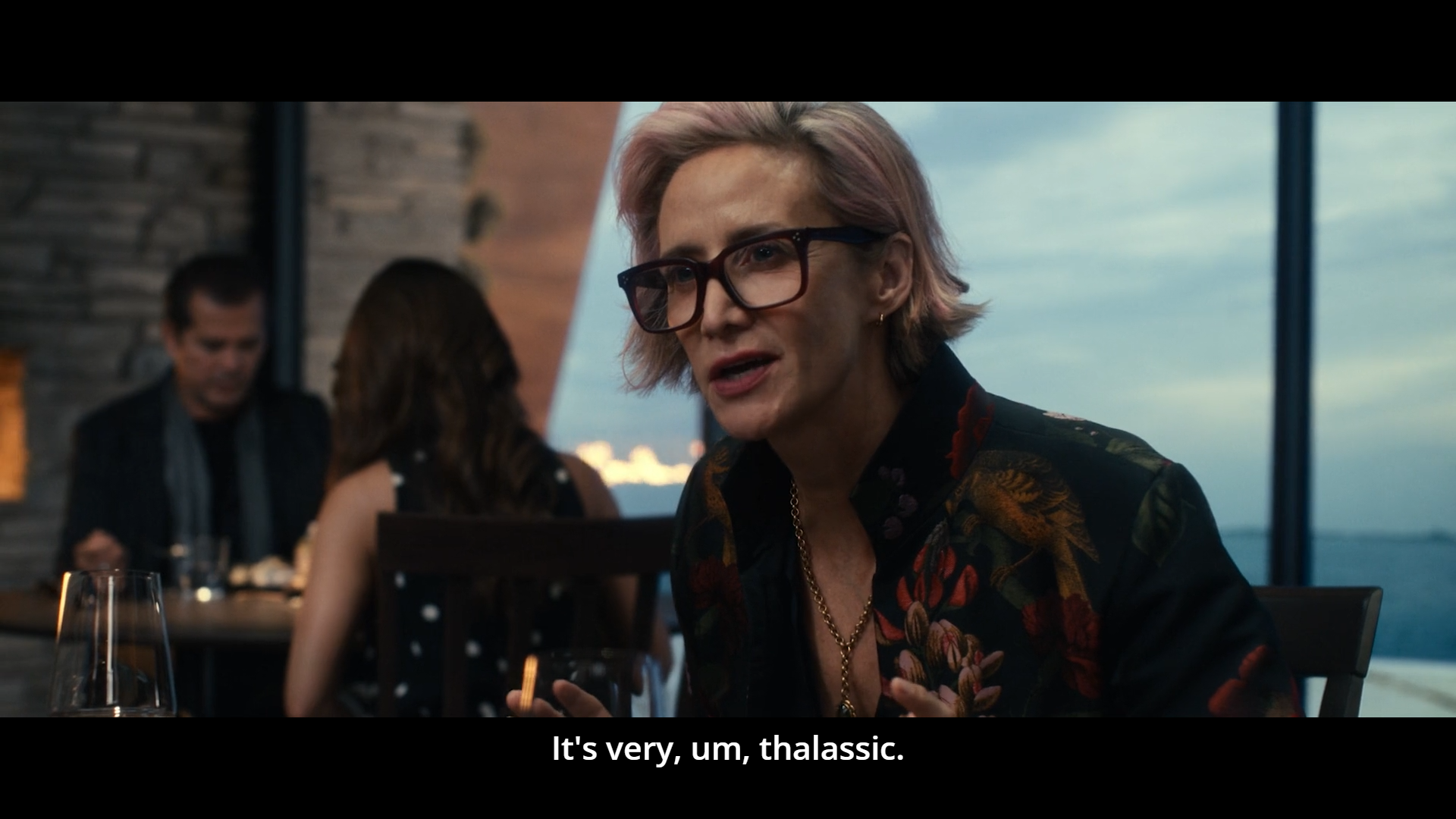

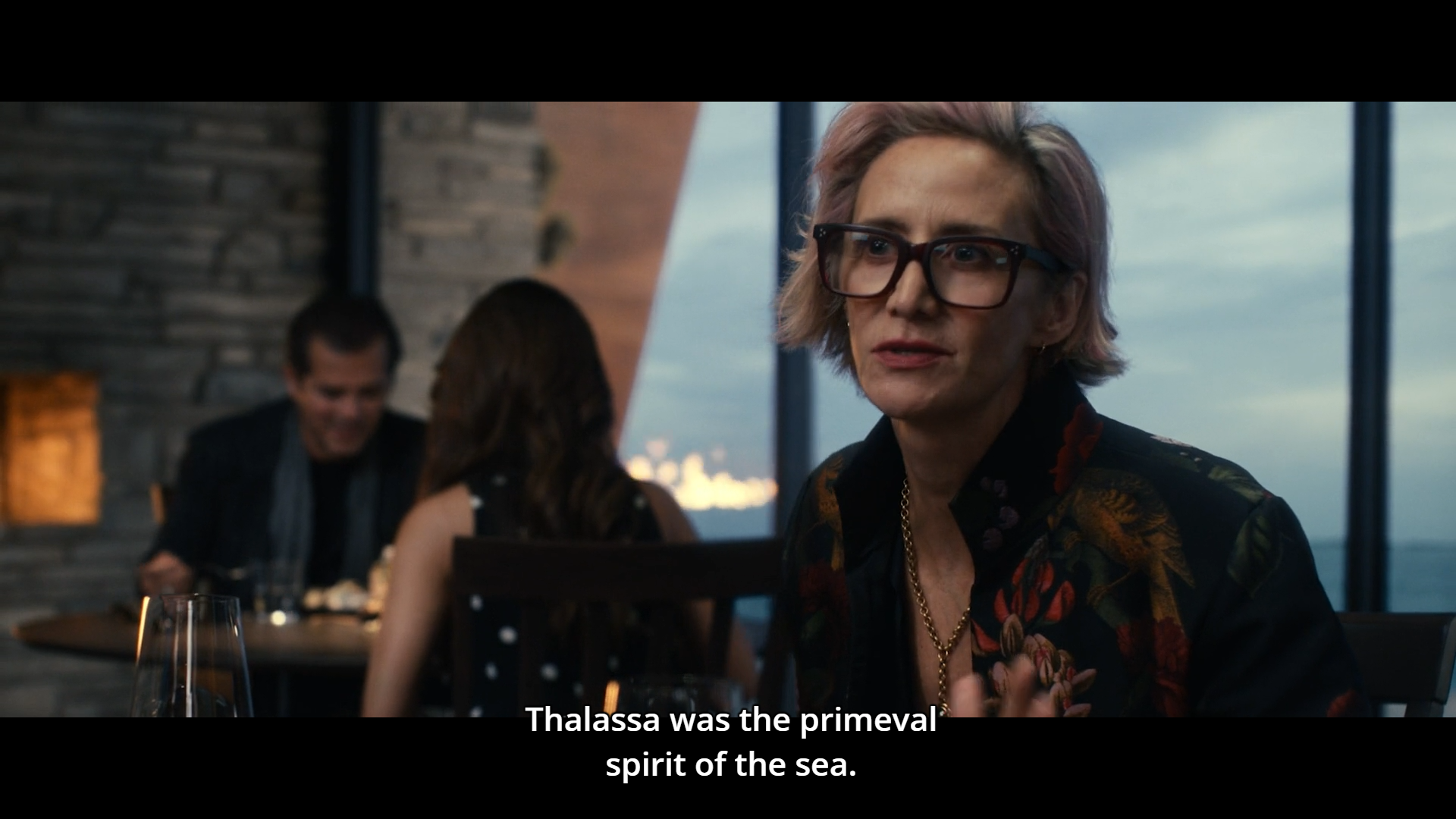
-It’s very, um, thalassic.
-“Thalassic”?
-Oceanic. Thalassa was the primeval spirit of the sea.
She could have immediately said oceanic, but her point was not to be understood; it was to show off her knowledge. I’m not saying we shouldn’t use uncommon words, but her small, dramatic pause lets us know that she understands that she will have to explain. She doesn’t use this word because it’s the best word to use in that occasion; she takes joy in not being clear.
This happened to me, too, someone told me that an exhibition (or someone’s work; I can’t remember) was oneiric. I didn’t bat an eye. “Do you know what that is, oneiric?”, they asked. I happen to have been born in Greece, so yes, I do. “In Greek”,
I said,
“it’s a common word:
όνειρο
means a dream”.
But imagine if I was born somewhere else or if that word was in a language I don’t speak -and these are many- then I probably wouldn’t have known what it meant. Would that have made the other person feel better?
The Menu / Directed by Mark Mylod; written by Seth Reiss, Will Tracy; story by Will Tracy; produced by Adam McKay,
Betsy Koch, Will Ferrell; starring Ralph Fiennes, Anya Taylor-Joy, Nicholas Hoult, Hong Chau, Janet McTeer,
Reed Birney,
Judith Light, John Leguizamo; cinematography Peter Deming; edited by Christopher Tellefsen; music by Colin Stetson.
[19:30-19:38], (2022). Watched 22.01.2023.
Το εναλλακτικό
=
The alternative

“Το εναλλακτικό το γεννά ο πόθος του αυτοπροσδιορισμού και, όταν μιλάμε για εναλλακτικό, θα πρέπει ταυτόχρονα να ορίζουμε και να έχουμε υπ’ όψιν μας ως προς τι είναι εναλλακτικό. Αν έχει ένα νόημα το εναλλακτικό είναι να αντιπαραθέσει —σε διάφορα επίπεδα, σε διάφορες τέχνες: στον λόγο, στη μουσική, στα εικαστικά, στον κινηματογράφο· παντού— σε έναν κυρίαρχο λόγο, που είναι ο λόγος του πολιτισμού —ερχόμαστε τώρα στον πολιτισμό, έτσι;— της οργανωμένης κοινωνίας, δίνοντας την απόκριση ότι υπάρχει ένας ποιοτικός και ουσιαστικός τρόπος να εκφραστείς που δεν ανήκει σ’ αυτό (το κυρίαρχο συγκρότημα) κι είναι εκείνο το οποίο αμφισβητεί, κριτικάρει τον κυρίαρχο λόγο. Ως προς αυτό είναι εναλλακτικό.” Γιάννης Πατίλης.
Κλεινόν άστυ: Ο εναλλακτικός περιοδικός Τύπος / Σενάριο-Σκηνοθεσία: Μαρίνα Δανέζη, διεύθυνση φωτογραφίας: Δημήτρης Κασιμάτης - GSC, Β’ Κάμερα: Θάνος Τσάντας, μοντάζ: Γιώργος Ζαφείρης, ηχοληψία: Βασίλης Ζαμπίκος, και άλλοι. Σύνδεσμος. [21:15-22:15], (2020©). Ακρόαση 21.01.2023.
--
“The alternative is born from the desire of self-determination and, when we talk of the alternative, we should simultaneously define and keep in mind as to what it is alternative. If the alternative has a meaning, it is to oppose—on various levels, in various arts: in literature, in music, in the visual arts, in cinema; everywhere—to a dominant discourse, which is the discourse of culture—we are now coming to culture, right?—of organized society, by giving the response that there is a qualitative and meaningful way of expressing oneself that does not belong to this (the dominant group) and it is that which questions and criticizes the dominant discourse. In this respect it is alternative.” Yannis Patilis.
Splendid City - Athens Urban Stories: The Alternative Magazine Press / Screenplay - Direction: Marina Danezi, director of photography: Dimitris Kasimatis - GSC, Second Camera: Thanos Tsantas, editing: Giorgos Zafeiris, sound engineering: Vassilis Zambikos, et al.. Link. [21:15-22:15], (2020©). Watched 21.01.2023.
Institutional expectations

“Let’s talk about the work and y’all stop making me the work.”
The African Desperate / Directed by Martine Syms; screenplay Martine Syms, Rocket Caleshu; cinematography ZhouDaisy; starring Diamond Stingily, Erin Leland, Ruby McCollister, Evan Calder Williams, Hunter Zimny, Cammisa Buerhaus, A.L. Steiner, Aaron Bobrow, Brent David Freaney, Erin Kelly Meuchner, Ariel Pomerantz, et al.,
[09:04], (2022). Watched 11.12.2022.
Rest and work
“There is no sea of time, but there is space.”
Kaya Erdinç 11.11.2022.
On being civil
“Anne donnait aux choses un contour, aux mots un sens que mon père et moi laissions volontiers échapper.”
“Anne gave things a contour, to words a meaning that my father and I willingly let slip.”
Bonjour Tristesse / Françoise Sagan, Julliard, p. 19, (1954). Translation mine (11.12.2022). Read 02.09.2022.



Julie: “This is the crux of our relationship. Everything we feel, we have to put into words. Sometimes, I just want to feel things.”
Aksel is not shown in the last frame, after Julie realises that the need to put everything into words is his and not hers.
Verdens verste menneske [The worst person in the world] / Directed by Joachim Trier;
Written by Eskil Vogt, Joachim Trier; Cinematography Kasper Tuxen; starring Renate Reinsve, Anders Danielsen Lie,
Herbert Nordrum,
et al.[01:04:20], (2021). Watched 14.03.2022.
Κοινωνικές μάσκες
=
Social masks
“Δειλοί και στριμωγμένοι στις θέσεις τους, κρατώντας μια πεισματική σιωπή, με ύφος περιφρόνησης για τα πράγματα που δήθεν δεν τους ενδιέφερεαν μα που πραγματικά τους ήταν άγνωστα...”
Ρομάντσο και άλλα πεζά / Μαρία Πολυδούρη, Εστία, σ. 48, ([1926], 2014), Ανάγνωση
17.08.2022.
Υγεία και κέρδος
=
Health and profit
“Σε μια εποχή με τάσεις ιατρικοποίησης-ψυχιατρικοποίησης της κοινωνικής και πολιτικής ζωής, σε μια εποχή που η υγεία ορίζεται με βάση την οικονομία και κατ’ επέκταση τις επιταγές των ασφαλιστικών εταιρειών, που η δραστηριότητα και η συμπεριφορά των ανθρώπων χαρακτηρίζεται και κατηγοριοποιείται με βάση το DSM, η περίπτωση Ζάρκου και τα γραπτά του, παρότι έχουν περάσει σχεδόν ενενήντα χρόνια, μας αφορούν και σήμερα.”
Αυτός που έσπασε τις βιτρίνες, Γιώργης Ζάρκος: 54 ημέρες εγκλεισμού στο Δημόσιο Ψυχιατρείο Αθηνών / Δημήτρης Γ. Υφαντής, Άγρα, σ. 17, (2020), Ανάγνωση 03.08.2022.
Probabilités, des avis
“Non, au contraire, dis-je, c’est tout à fait normal. Nos trajectoires ordinaires ne se rencontrant pas, c’est dans l’extraordinaire que se situent nos points d’intersection: forcément!...”
“On parle de l’Amour et de la Beauté. Toutes deux sont, sur la question, d’avis diamétralement opposé. Aurélia affirme qu’on aime quelqu’un parce qu’on le trouve beau, Jenny affirme qu’on le trouve beau parce qu’on l’aime.”
Ma nuit chez Maud & La Collectionneuse in Six Contes Moraux / Éric Rohmer, Cahiers du cinéma, p. 66-67 & p. 127, ([1998], 2020). Read 17.07.2022.
Politics of self
“Nowadays, the practice of self is inseparable from the governmental control that the individual is asked to —and often agrees to— exert upon him or herself.”
Sanja Iveković: Triangle / Ruth Noack, Afterall Books, p. 86, (2013). Read 13.07.2022.
Baldessari’s mayo
“A.C.: If you take a look at this work, Prima Facie (Fifth State): Pure Joy, I can understand this one more easily in this series because it’s closer to a feeling. You can relate to pure joy as to some kind of feeling. But how can one relate to mayonnaise? How does that fit in?
J.B.: That’s what you say. I don’t know what somebody else would say. Obviously it’s all about marketing and apparently someone thought calling this color that name would sell. Don’t ask me. I like the idea... Well, one could think of an emotional state called mayonnaise. I can say my mind feels like jello. Maybe someone could say my mind feels like mayonnaise or my skin feels like mayonnaise. I don’t know. I have no idea. People are creative with language.”
He is definitely onto something. Although completely inaccurate, mayonnaise is what I call the colour of my skin in winter. More importantly, though, language escapes its standard meanings within different contexts and can allow for new ideas to form, when used unexpectedly.
The prima facie series / John Baldessari; interview by Ann Cesteleyn. Museum Dhondt-Dhaenens. (2006). Read 07.07.2022.
Chance or choice?
“Comme si les chemins familiers tracés dans les ciels d’été pouvaient mener aussi bien aux prisons qu’aux sommeils innocents.”
L’Étranger / Albert Camus, Éditions Gallimard, p. 97,([1942], 2005). Read 18.06.2022.
Poverty
“People who don’t know what it’s like being poor are always like, ‘It’s okay to be poor, as long as you have love,’ but they don’t know what they’re saying.”
Heaven / Mieko Kawakami, Picador, p. 59, (2021). Read 29.05.2022.
The convent
![]()
Photograph taken 27.05.2022.
Passion
“Je ne veux pas expliquer ma passion
—cela reviendrait à la considérer comme une erreur ou un désordre dont il faut se justifier— mais simplement l’exposer.”
--
“I do not wish to explain my passion —that would imply that it was a mistake or some disorder I need to justify— but simply to describe it.”
Une passion simple / Annie Ernaux, Éditions Gallimard, p.32, (2002).
&
A Simple Passion / Annie Ernaux; translated by Tanya Leslie, Fitzcarraldo Editions, p.22, (2021).
Read 06.05.2022.
Τα γνωστά προβλήματα
[...] “ὅταν διέκρινα κολλημένην εἰς τὸν τοῖχον ὡς ταπεσσαρίαν τὴν κυρίαν Κλεαρέτην Γαλαξίδη”[...]
Ψυχολογία Συριανοῦ συζύγου / Εμμανουήλ Ροΐδης, Ανοικτή Βιβλιοθήκη, σ. 11, ([1894], 2018). Σύνδεσμος. Ανάγνωση
13.04.2022.
Counter-factual, A.I., art
Η τέχνη μπορεί να δημιουργήσει αυτό που δεν έχει συμβεί.
--
Art can create that which has not occurred.
X.A. 10.04.2022.
Odyssey

[...] “φωτιά τρανή στο τζάκι ελάβριζε, και το νησί ένα γύρο
μοσκοβολούσε απ’ τον καλόσκιστο τον κέδρο και τη θούγια,
ως καίουνταν· κι εκεινής η γάργαρη φωνή ακουγόταν μέσα,
καθώς στον αργαλειό της ύφαινε με ολόχρυση σαγίτα.
Το σπήλιο δάσο το περίζωνε δροσάτο φουντωμένο,
σκλήθρες και λεύκες και μοσκόβολα τρογύρα κυπαρίσσια.
Πουλιά κουρνιάζαν απλοφτέρουγα στα κλώνια τους, γεράκια
και κουκουβάγιες και μακρόγλωσσες θαλασσινές κουρούνες,
που ολημερίς πετούν στα πέλαγα. Κι εκεί, κατάντικρά σου,
κληματαριά θωρούσες, που άπλωνε βλαστούς θρασομανώντας
στο βαθουλό το σπήλιο ολόγυρα, σταφύλια φορτωμένη.
Κι ήταν αράδα βρύσες τέσσερις, η μια στην άλλη δίπλα,
μα αλλούθε η καθεμιά τους ξέχυνε τα γάργαρα νερά της.”
Σ’ αυτό το μικρό -αλλά πυκνό- απόσπασμα της Οδύσσειας σχεδόν όλες οι αισθήσεις είναι παρούσες, με την εξαίρεση της γεύσης, που θα εμφανιστεί λίγους στίχους αργότερα (στ. 93, “αθάνατη θροφή, κι αθάνατο κρασί”). Στην παραπάνω εικόνα έχω σημειώσει* τις σαφείς λεκτικές αναφορές στις αισθήσεις, αν και δημιουργούνται κι άλλες, μη λεκτικές, που εννοούνται, όπως η ηχώ -και άρα η ακοή- από τον συνδυασμό της γάργαρης φωνής με το βαθουλό σπήλαιο.
Οδύσσεια / Όμηρος, μετάφραση Νίκος Καζαντζάκης, Ιωάννης Κακριδής, Ινστιτούτο Νεοελληνικών Σπουδών (Ίδρυμα Μανόλη Τριανταφυλλίδη), Αριστοτέλειο Πανεπιστήμιο Θεσσαλονίκης, Ραψωδία ε, σ. 68, ([2015], 2018). (Ανάγνωση 04.03.2022.)
*Οι σημειώσεις γράφηκαν πάνω σε φωτοτυπία κι όχι στο βιβλίο.
----
“Beside the hearth a mighty fire was burning.
The scent of citrus and of brittle pine
suffused the island. Inside, she was singing
and weaving with a shuttle made of gold.
Her voice was beautiful. Around the cave
a luscious forest flourished: alder, poplar,
and scented cypress. It was full of wings.
Birds nested there but hunted out at sea:
the owls, the hawks, the gulls with gaping beaks.
A ripe and luscious vine, hung thick with grapes,
was stretched to coil around her cave. Four springs
spurted with sparkling water as they laced
with crisscross currents intertwined together.”
In this small -but dense- excerpt of the Odyssey almost all senses are present, except from taste, which will appear some verses later (v. 93, “heaped with ambrosia, and she mixed a drink”). The image above shows my markings** of clear verbal references to the senses, although more are created and implied -such as the echo of Calypso’s voice in the cave, and, thus, hearing.
The Odyssey / Homerus; translated by Emily Wilson, W. W. Norton & Company, p. 182-183, (2018).
**The markings were written on a photocopy -or xerox; whatever you prefer calling it- and not the book itself.
Classics I read too late
Elesin:
[...]
“
Where I found little I made do with little.
Where there was plenty I gorged myself.”[...] p. 13.
Olunde:
“I discovered that you have no respect for what you do not understand.” p. 55.
[...] “Then I slowly realised that your greatest art is the art of survival. But at least have the humility to let others survive in their own way.” p. 58.
Death and the king’s horseman / Wole Soyinka, Methuen Drama, ([1975], 2002).
(Read 26.02.2022.)
Disturbing familiarity
![]()
![]()
“Three or four years, it’ll probably be against the law to smile at strangers. Yeah. Tobacco today, sex tomorrow.”
Smoke / Directed by Wayne Wang; written by Paul Auster; cinematography by Adam Holender; starring
William Hurt, Harvey Keitel, Stockard Channing, Harold Perrineau Jr., Giancarlo Esposito, Ashley Judd, Forest Whitakeret; et al.,
[09:47], (1995). Watched 30.01.2022.
End of the year / closing and opening
“Écoute plus souvent
Les Choses que les Êtres,
La Voix du Feu s’entend,
Entends la Voix de l’Eau.
Écoute dans le Vent
Le Buisson en sanglots,
C’est le Souffle des Ancêtres.”
—Birago Diop, Souffles
“Listen to Things
More often than Beings,
Hear the voice of fire,
Hear the voice of water.
Listen in the wind,
To the bush that is sobbing:
This is the ancestors, breathing.”
—Birago Diop, Spirits
Excerpt from the French and English versions of the book: Ceux qui sont morts ne sont jamais partis: La préservation de la suprématie, du Musée Ethnologique et les complexités du
Forum Humboldt / Bonaventure Soh Bejeng Ndikung
&
Those
Who
Are
Dead
Are
Not Ever
Gone: On the Maintenance of Supremacy, the Ethnological Museum and the Intricacies
of the Humboldt Forum / Bonaventure Soh Bejeng Ndikung, Archive Books, (2018).
Both full versions can be found on the website of Archive Books for free here. (Read 01.12.2021.)
The machine
“Our bodies are disappearing.”
Asli Burger
—after looking at an exhibition catalogue.
The machine : as seen at the end of the mechanical age / K. G. Pontus Hulten, 1968, New York: Museum of Modern Art. 18.11.2021.
Junkermann
“Τῷ καιρῷ ἐκείνῳ κυβερνοῦσε τήν Ἑλλάδα ἕνα ἀπό τά δυό μεγάλα «ἱστορικά» κόμματα. Κυβερνοῦσε, εἶναι σχῆμα λόγου. Δεν κυβερνοῦσε ἀπολύτως τίποτα. «Ἦταν στα πράματα» -αὐτή εἶναι ἡ κυριολεξία.”
Τά στερνά τοῦ Γιούγκερμαν / Μ. Καραγάτσης, Εστία, σ. 318, ([1941], 2021). (Ανάγνωση
07.11.2021.)
--
At that time one of the two big "historical" parties was ruling Greece.
"Was ruling"
is a figure of speech. It did not rule anything at all.
"It was in
"
—this is the literal wording.”
The last days of Junkermann / M. Karagatsis; Hestia, p. 318, ([1941], 2021), translation mine (23.07.2022).
The sea
![]() Photograph taken
13.08.2021.
Photograph taken
13.08.2021.
On otherness
“I didn’t have the privilege of being the other; I am the within.”
Aà. 25.05.2021.
On melancholia
“Melancholia foreshadows and anticipates mourning.”
Picture Cycle / Masha Tupitsyn, Semiotext(e), p. 25, (2019). A link to the article version of this text can be found here. Read 12.2020.
Distinctions
“High and low culture is not really a distinction; it’s hard for one to exist without the other.”
Alexandra Phillips. 3.11.2020.
Culture(s)
«Τό μόνο πού μποροῦμε να κάνουμε ἐμεῖς εἶναι να βοηθήσουμε νά διατηρηθεῖ, στή χώρα μας τουλάχιστον, ὅση περισσότερη ἀπό κείνη τήν ἰδιότυπη ἑλληνική ἀνθρωπιά γίνεται, ὅσο περισσότερος ἑλληνικός χαρακτήρας γίνεται, ἀκόμα καί μέ τίς κακές πλευρές του, πού δέν εἶναι τόσο κακές σέ σύγκριση μ’ ἄλλων λαῶν, καί νά μήν ἰσοπεδωθοῦμε ἀπ’ τήν ἀμερικανική ἤ ὅποια ἄλλη μπουλντόζα.»
Ἕνας Ἕλληνας δράκος στό Λονδίνο / Κώστας Ταχτσής, Εκδόσεις Καστανιώτη, σ. 68, ([1972], 2002). Ανάγνωση
10.04.2020.
“The only thing we can do
—in our country, at least— is help preserve as much of that idiosyncratic Greek humanity as possible, as much Greek character as possible, even with its bad sides, which are not as bad as other peoples’, and to not be levelled off by the American or any other bulldozer.”
A Greek Dragon in London / Costas Tahtsis (or Taktsis); Kastaniotis Editions, p.68, ([1972], 2002), translation mine (23.07.2022).
“Cultures exist in a perennial process of becoming and cultural evolution does not depend on ovaries or sperm or skin color —it depends on schools, on books, on friendships, on the sharing of resources and technology. Identity is based on an imaginary sense of belonging to a common past, while cultural becoming anticipates the futures inscribed in the present of social life.”
Breathing: Chaos & Poetry / Franco “Bifo” Berardi, Semiotext(e), p. 109, 2018. Read 15.11.2020.
Tahtsis’ text was written under a politically strained time, when tying around a common identity is psychologically crucial to endure such restrains on freedom and life, but isn’t Bifo’s understanding of culture wonderfully optimistic?
The root of the word “culture” comes from the latin –colo, which means “to cultivate”, and which in its turn comes from the Indoeuropean
*kʷel-, meaning, among other things, “to move”. If culture is cultivation, isn’t working together better than comparing cultures? If our ideas, our cultures are movement, shouldn’t encounters with different ways of thinking thrill us, instead of make us insecure?
(Addition to thoughts of 02.05.2020.)
Betty
«Όλ’ αυτά ήταν εφιαλτικά γιά μένα καί μέ συγκρατούσαν. Μ’ έκαναν νά συμπεριφέρομαι σεμνά, δηλαδή μ’ ένα κομφορμισμό, γιά νά αποφεύγω τίς τιμωρίες. Ο φόβος μέ είχε μεταβάλλει σέ άτομο υποδειγματικό, μέ τόν τρόπο πού μέ ήθελαν οί ενήλικοι.»
Μπέττυ / Ελισάβετ Βακαλίδου, Ἑξάντας, σ. 62, 1979. (Ανάγνωση
07.2020.)
--
“All this was nightmarish for me and held me back. It made me behave modestly, with conformism that is, so I would avoid being punished. Fear had transformed me into an exemplary person, in the way adults wanted me to be.”
Betty / Elisabeth Vakalidou, Exantas, 1979; translation mine (13.07.2022).
Orlando
[...]
“the death we die daily”
[...]
Orlando / Virginia Woolf, Macmillan Collector’s Library, ([1928], 2017), read 05.2020.
Trein
“Er is zo veel agressie en het is maar pas dinsdag.”
Iemand in de trein. 08.10.2019.
--
“There is so much aggression and it’s only Tuesday.”
Someone in the train. 08.10.2019.
On being on time
“It’s not punctuality, it’s hunger.”
J.M.B. 04.09.2019.
A number
A number, like an image, stuck in your head. A zero. A six. A couple of fours. More digits in your out-of-tune brain. A day passes, you still remember it. It’s not an important number, not entirely useless either.
You twist it, feel it on your tongue, feel how it sounds. Think how it would have been being a great mathematician. You are not. But that first encounter you cannot forget. It will be with you for days, until something else finally replaces it.
A number, an image.
04.09.2019.
Loxadra
“Και σπιτικό που ο ακρογωνιαίος λίθος του δεν είναι κάτω απ’ την κουζίνα, δε θεμελιώνεται καλά.”
Λωξάντρα / Μαρία Ιορδανίδου, Εστία, σ. 25, ([1963], 2017). Ανάγνωση 15.02.2019.
--
“And a house of which the cornerstone is not under the kitchen is not well founded.”
Loxadra / Maria Iordanidou, Hestia, p. 25,
([1963], 2017).
The resilience of life
![]()
Photograph taken
24.01.2015.
Light
![]()
Photograph taken
26.11.2013.
![]()
Everything connects through light.
Photograph taken
03.08.2013.
Rock
“C’est ça le glam rock; c’est la tristesse couverte de paillettes.”
Arthur Scott, 27.01.2010.
--
“That’s glam rock; it’s sadness covered in glitter.”
Arthur Scott,
27.01.2010.
Images: Afro Xylanthé (unless otherwise stated)
Εικόνες: Άφρο Ξυλάνθη (εκτός και αν υπάρχει αναφορά άλλου δημιουργού)
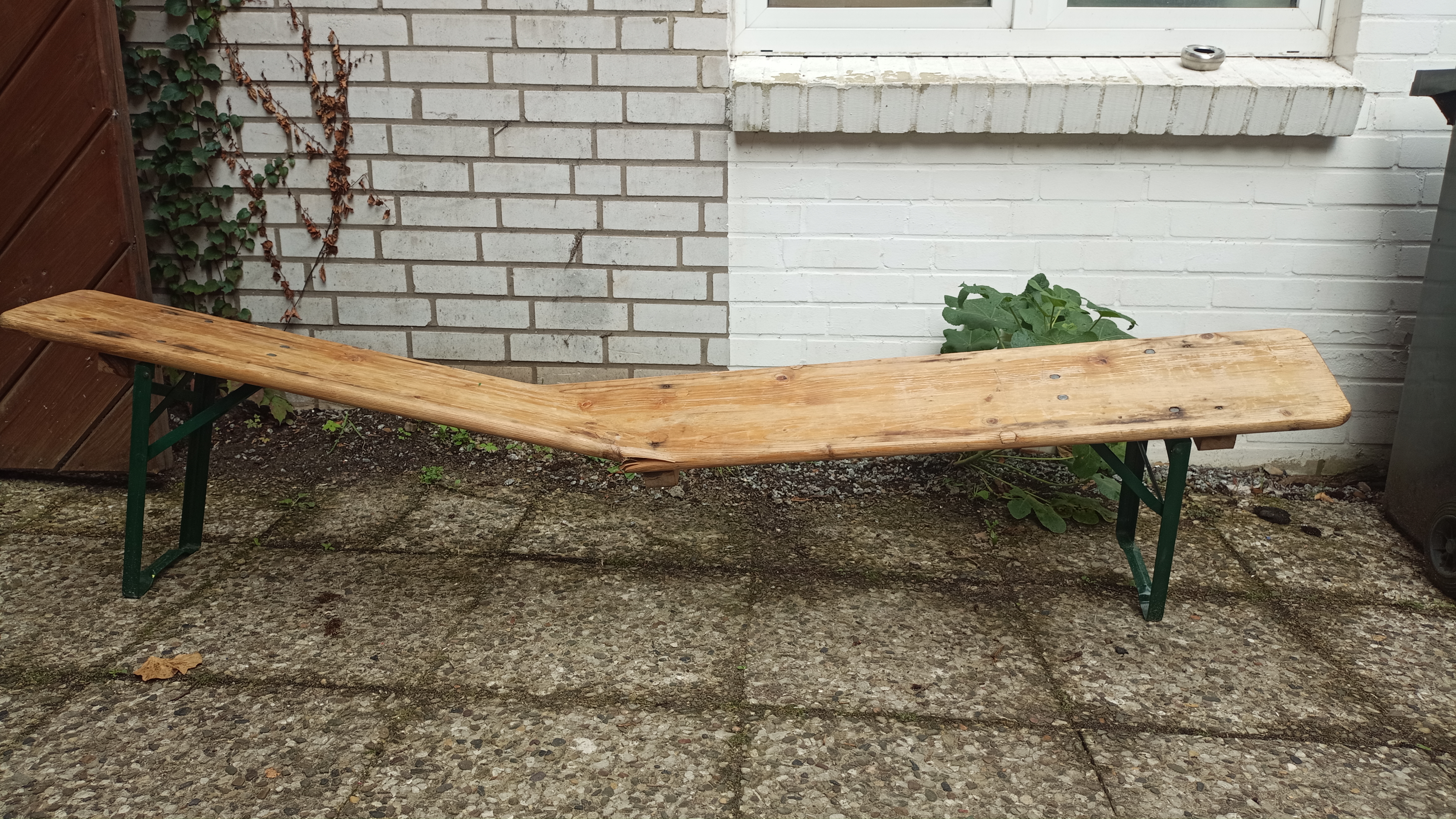
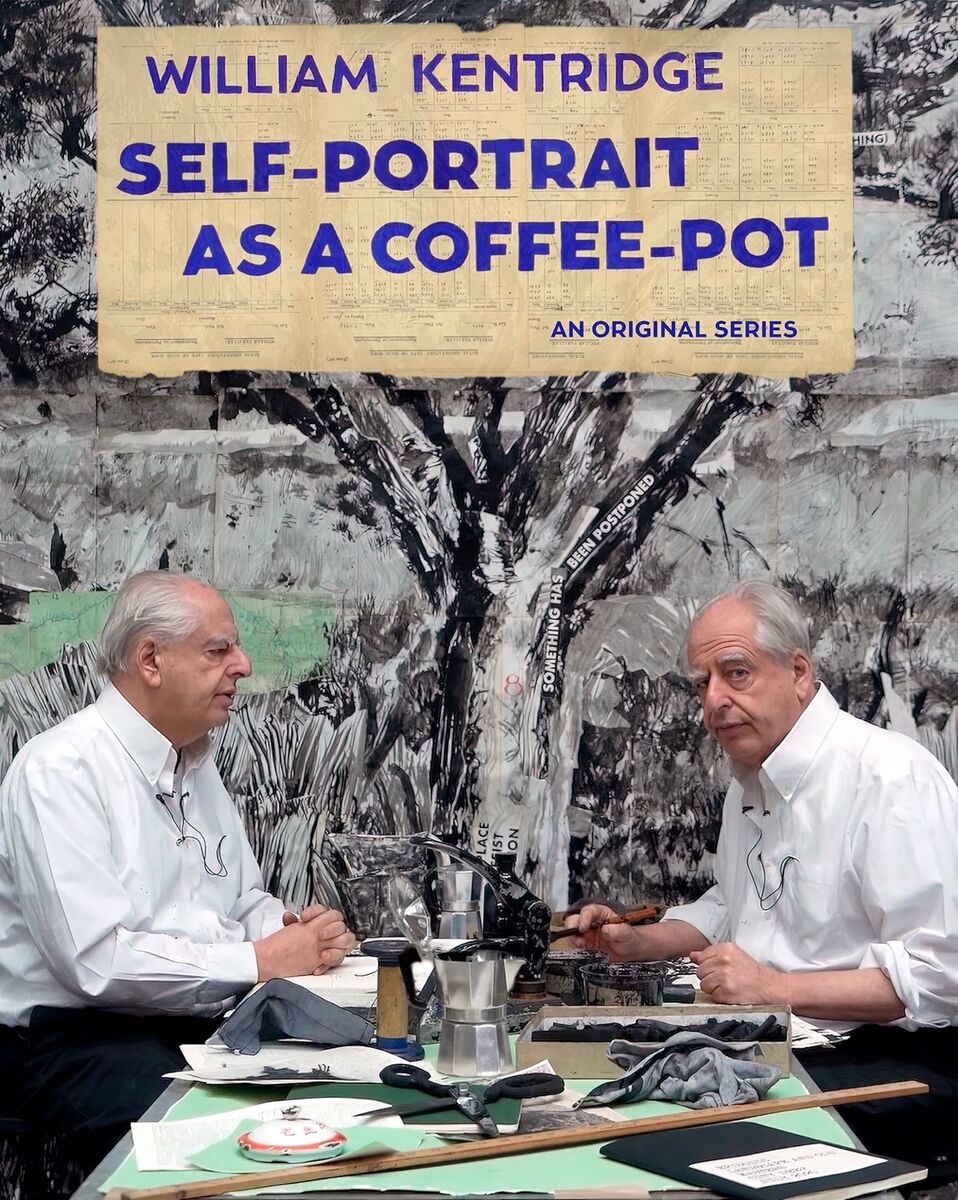
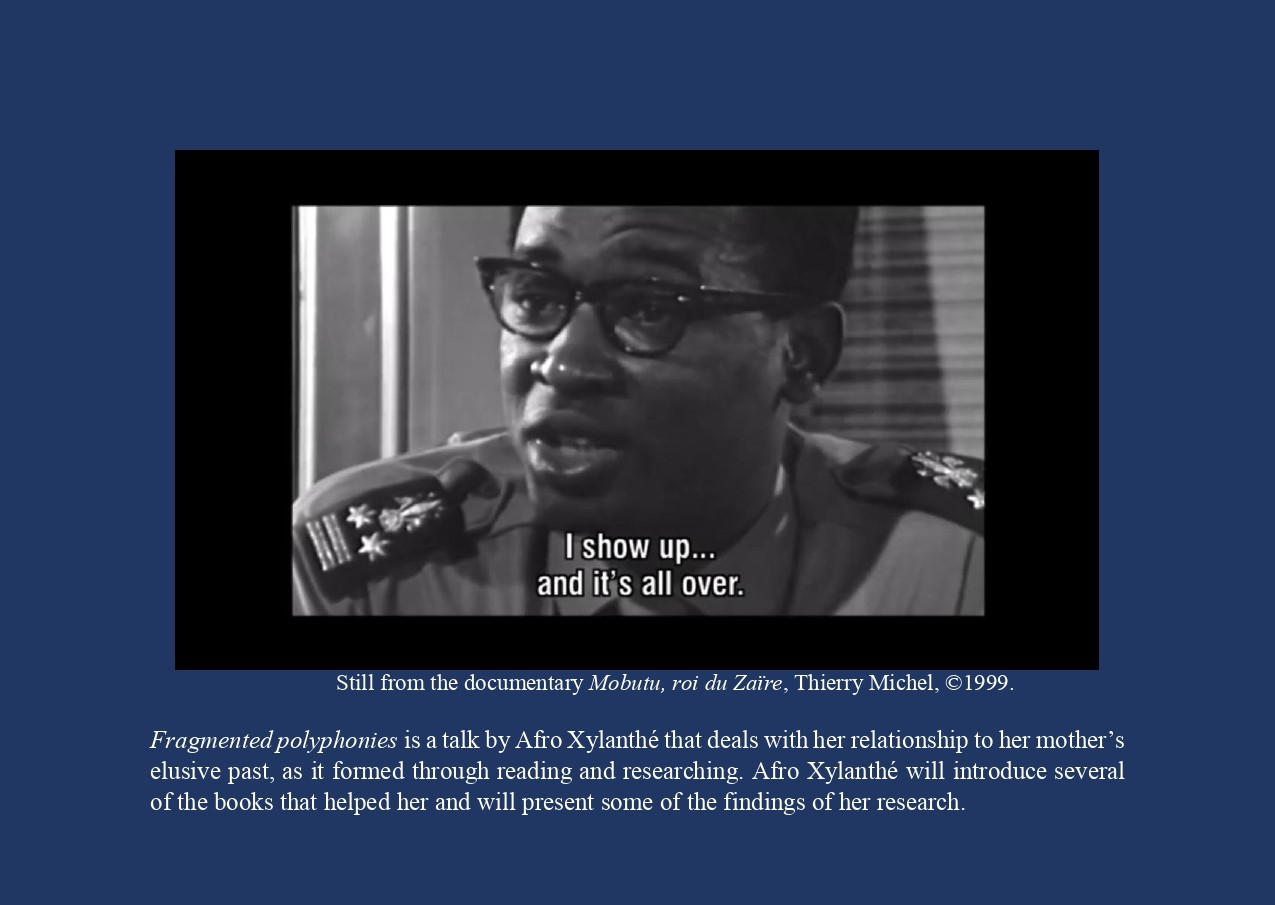
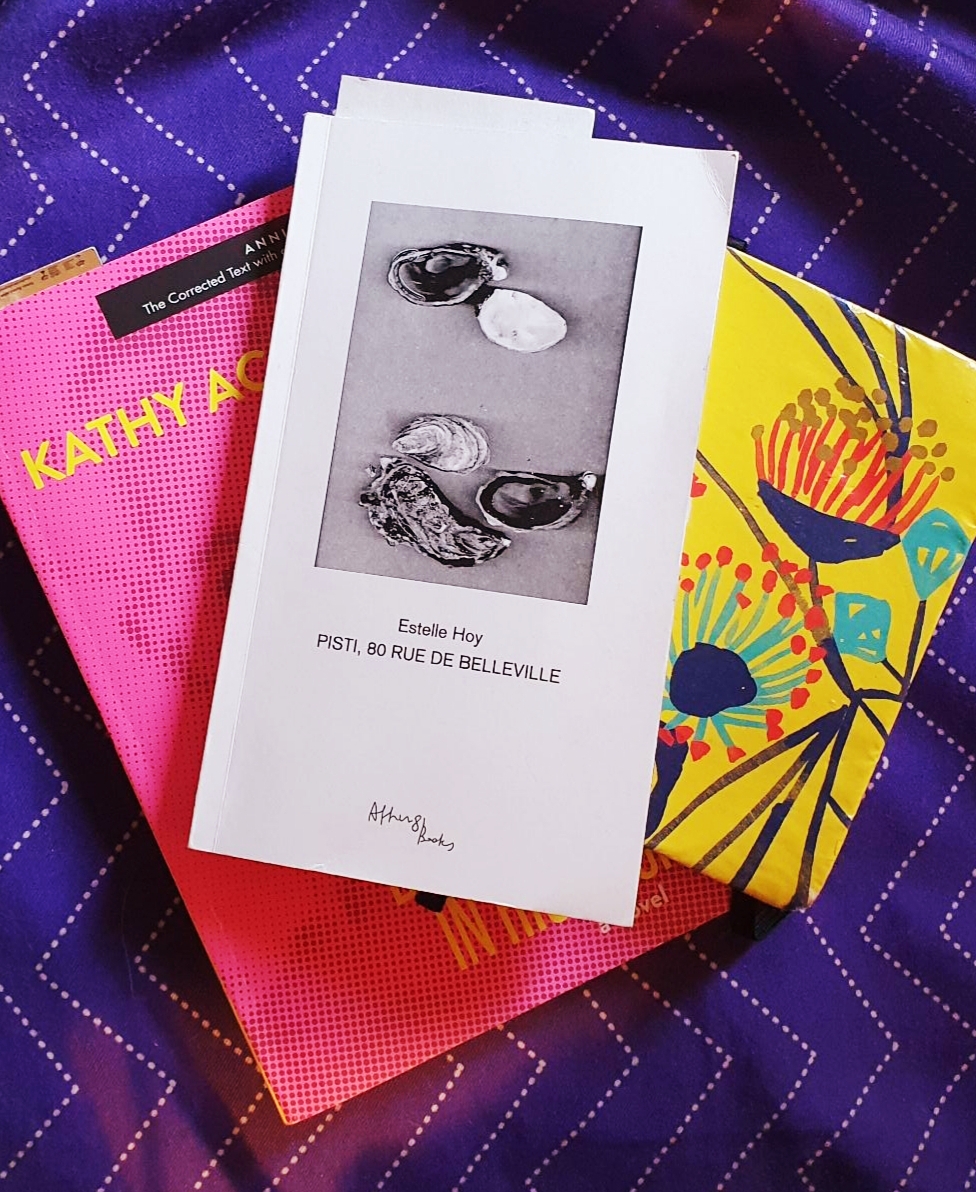
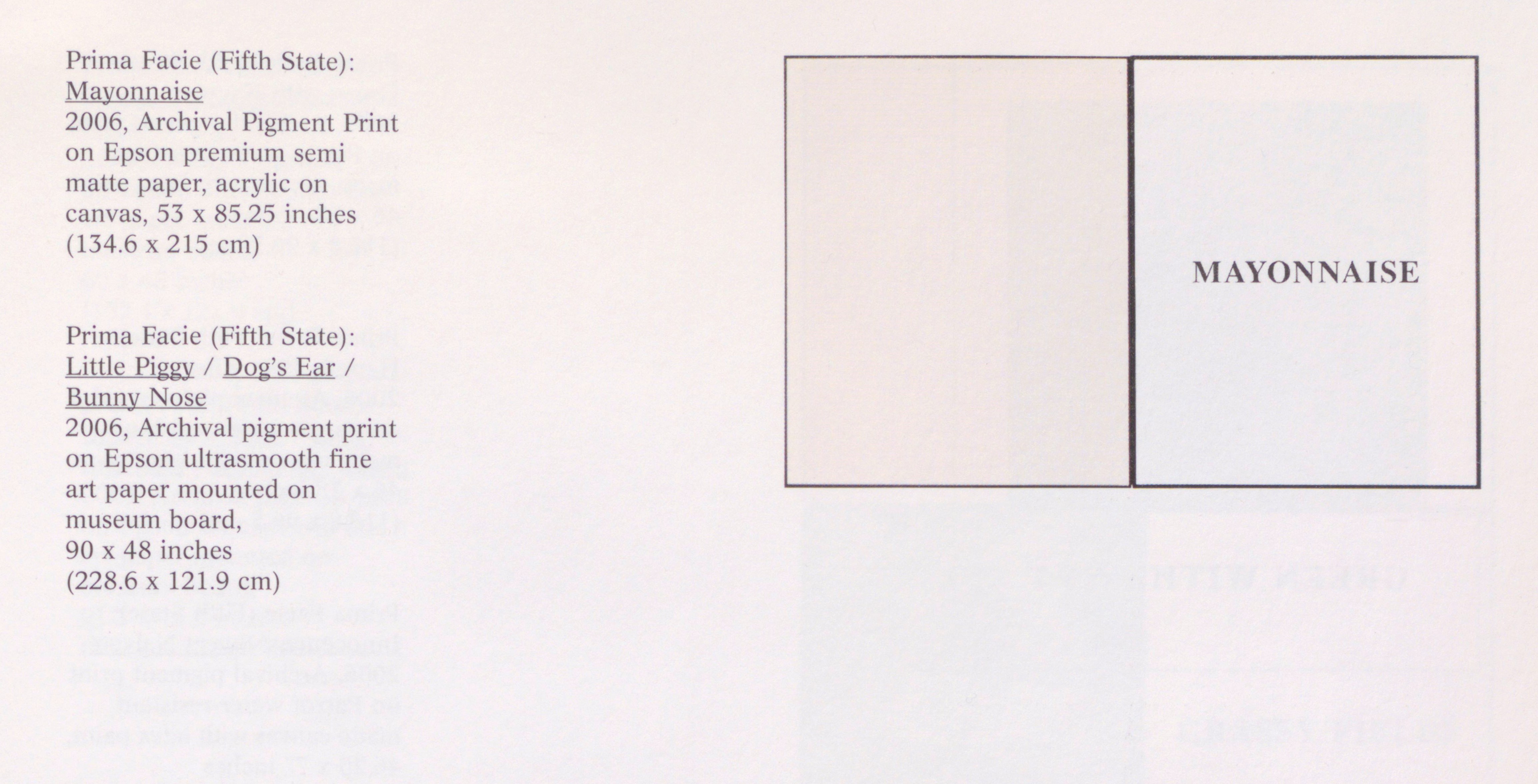

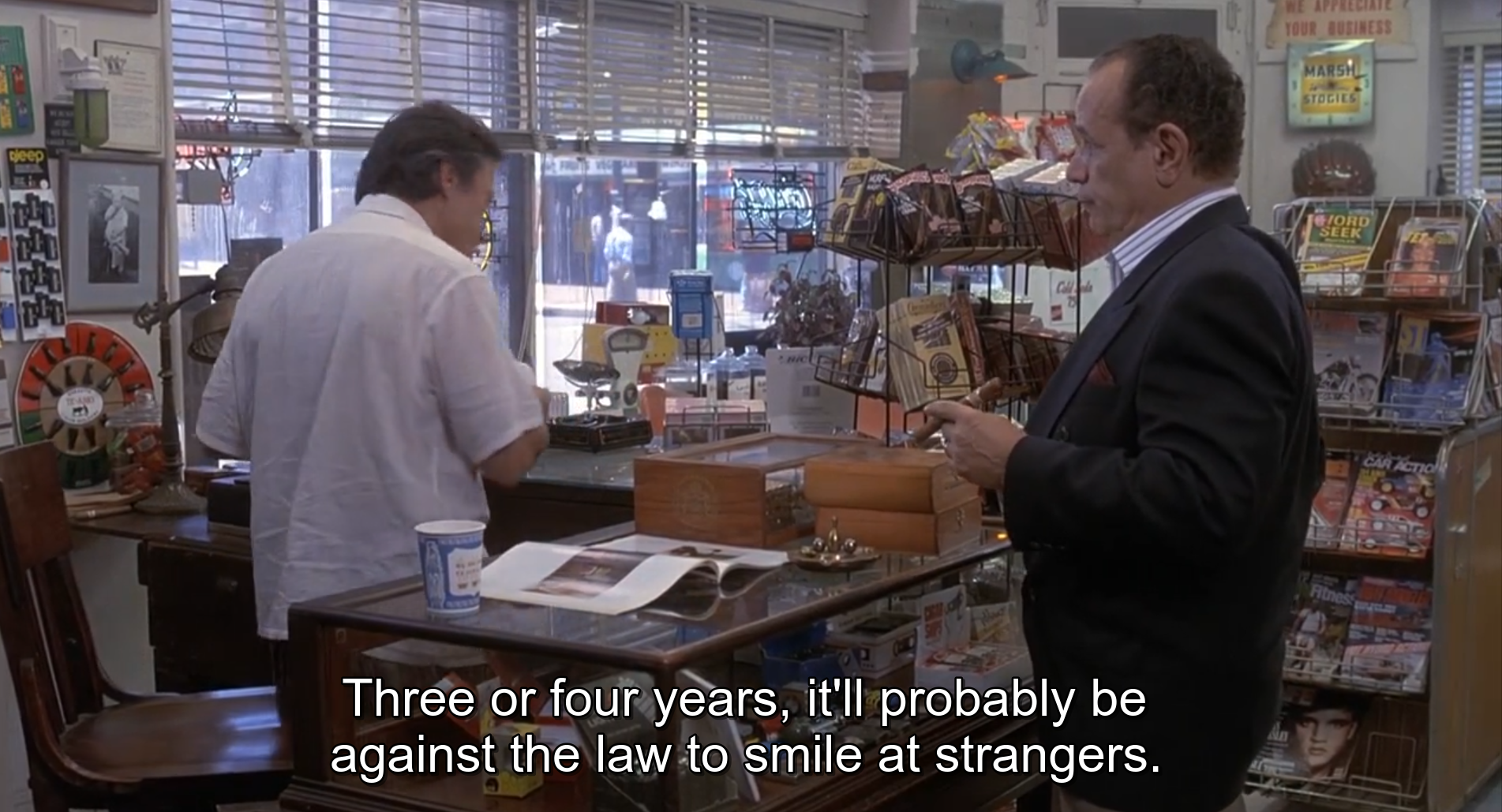


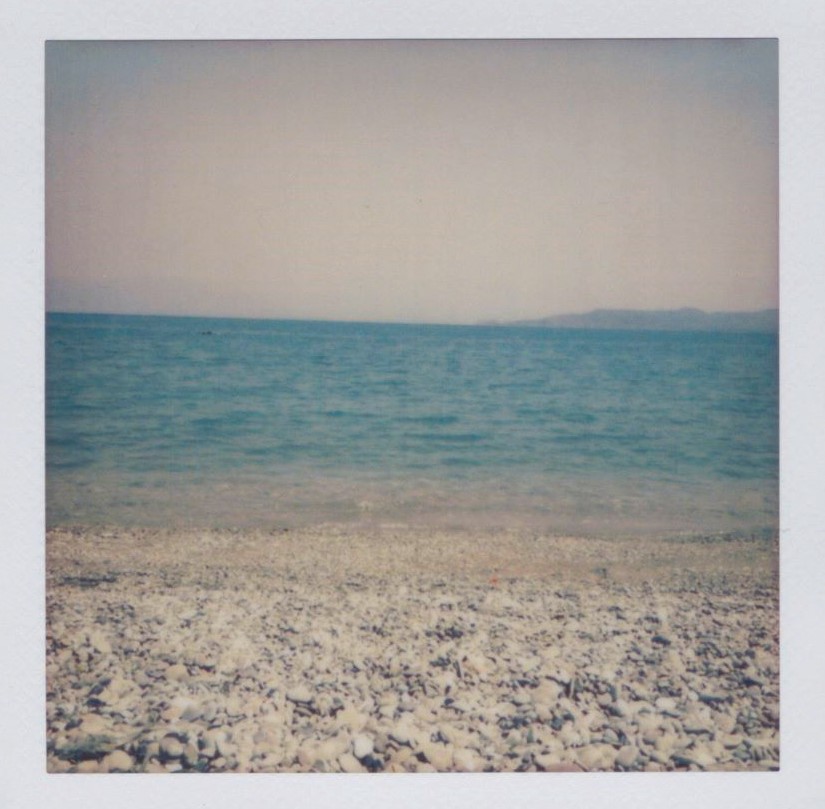 Photograph taken
13.08.2021.
Photograph taken
13.08.2021.